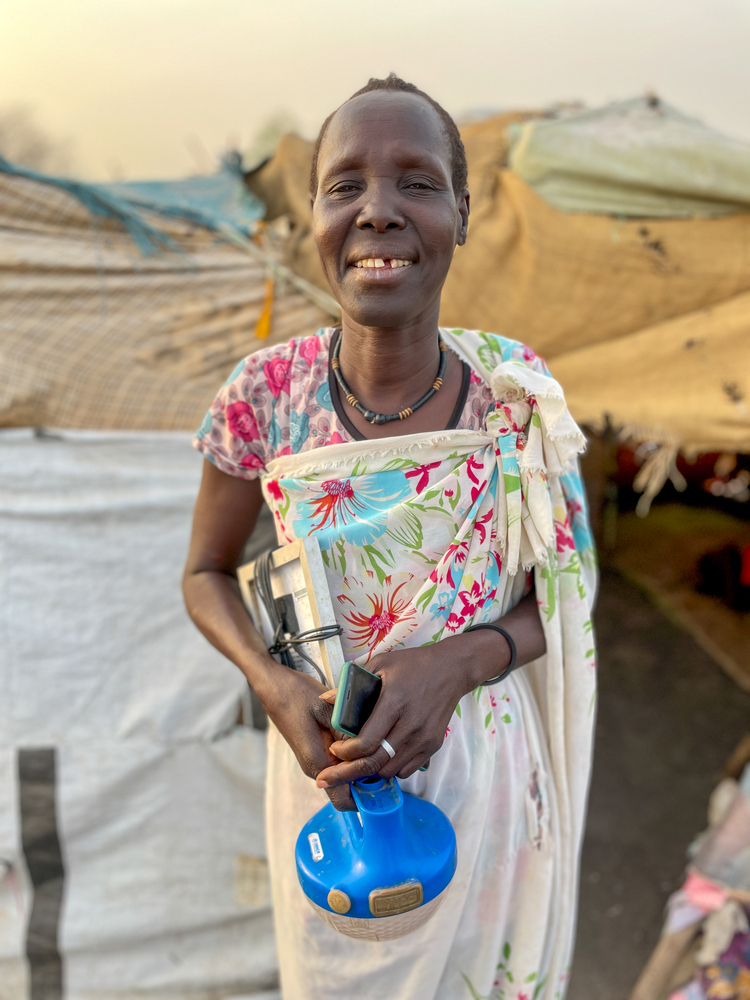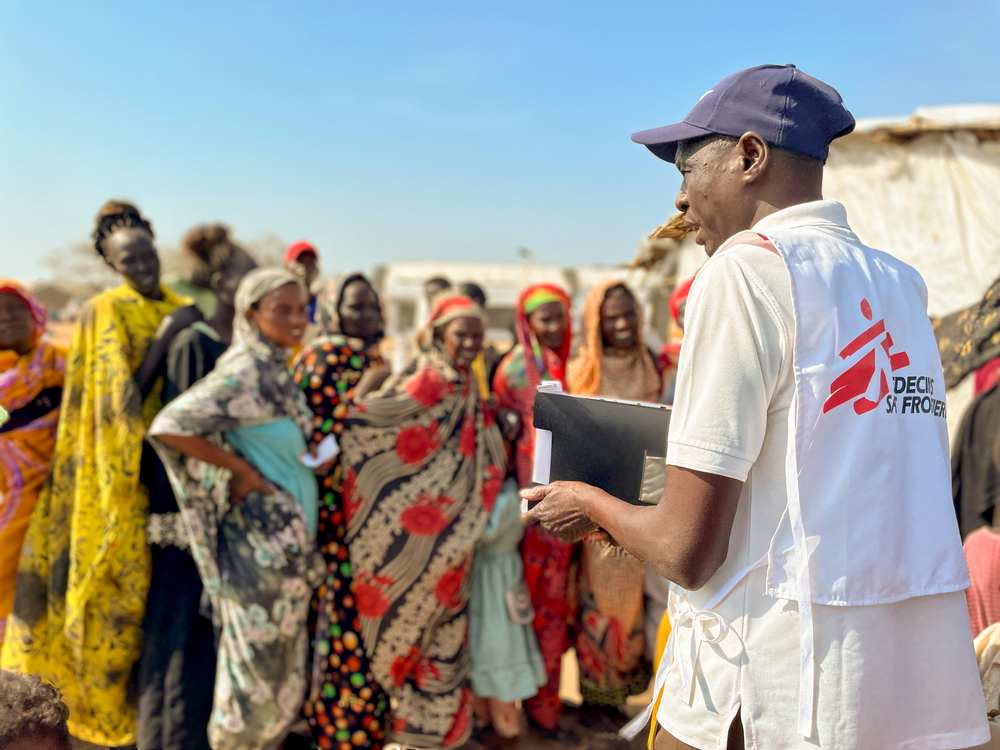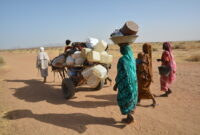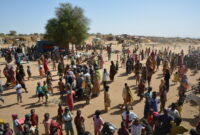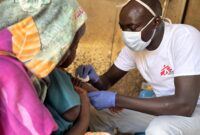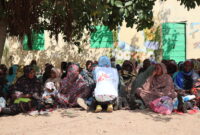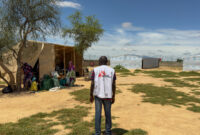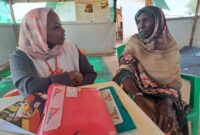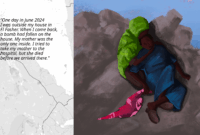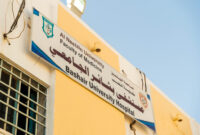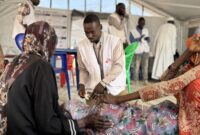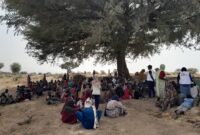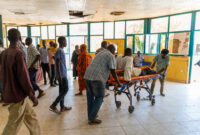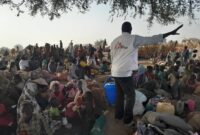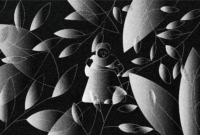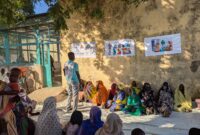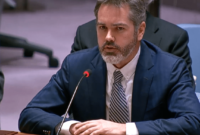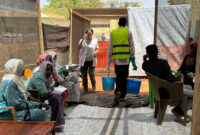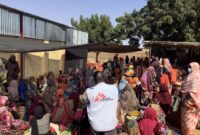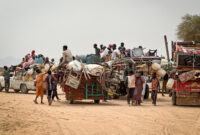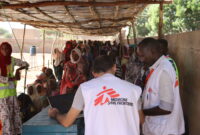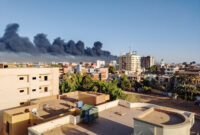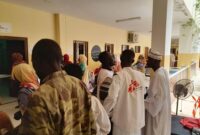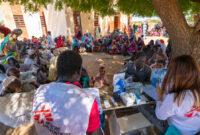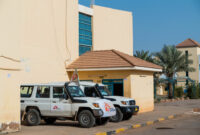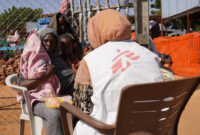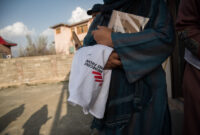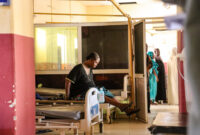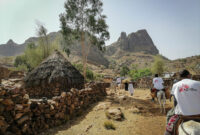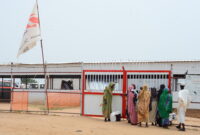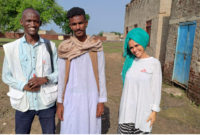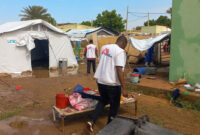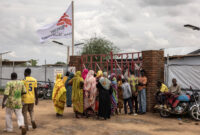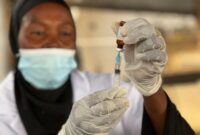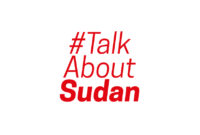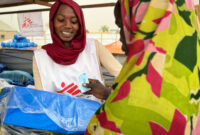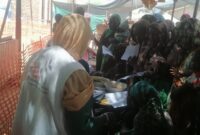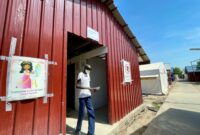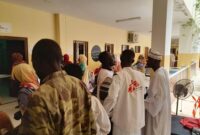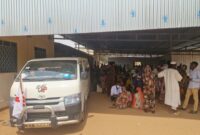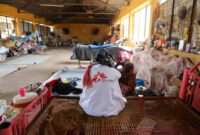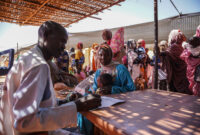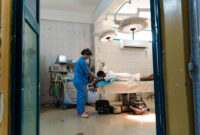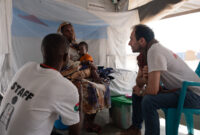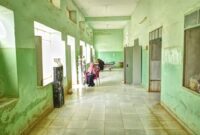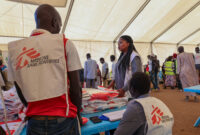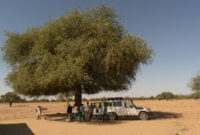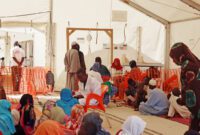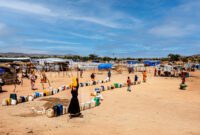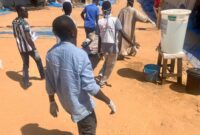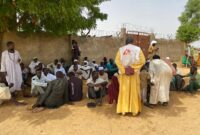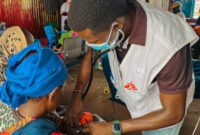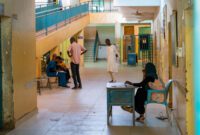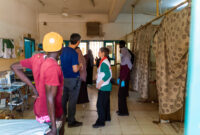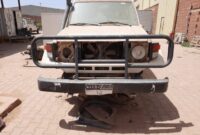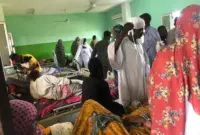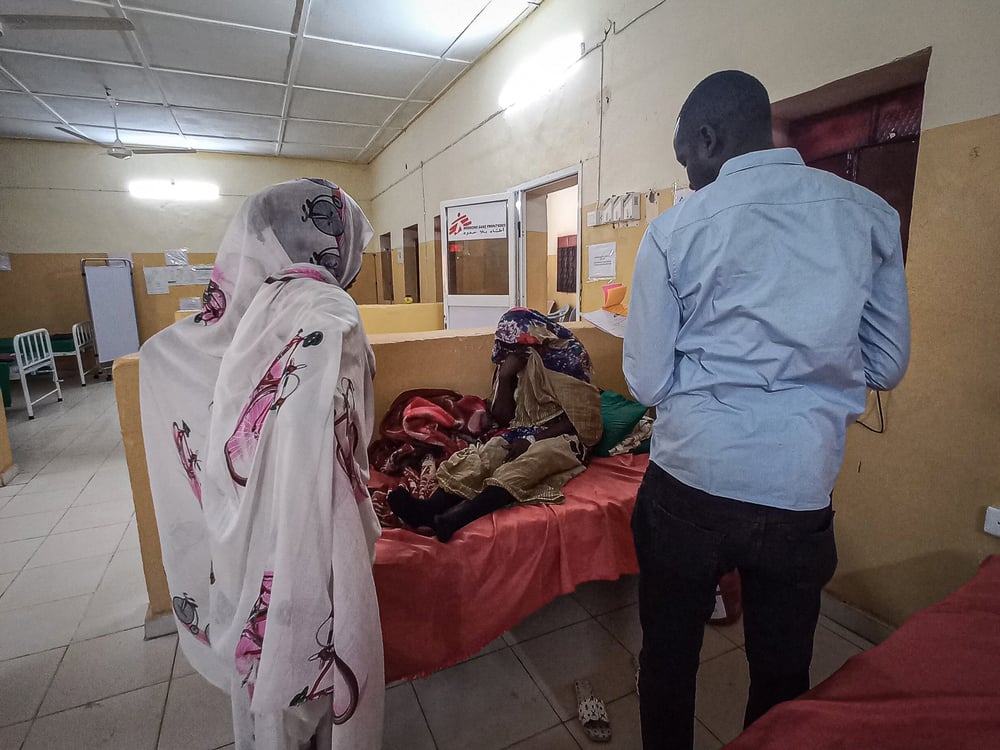Sudan: “We don’t know where we can go”
These are the testimonies of displaced people in both transit centres.
Renk transit centre, located around 60 kilometres from Joda, the official entry point, hosts 13,000 refugees and returnees fleeing the war. There, living conditions are dire, with insufficient food, water, shelter, sanitation, and healthcare. About 300 kilometres away, thousands of people are facing the same conditions in the Bulukat transit centre.
Dak Denj Uchol, 70 years old.
17 people in the family. Youngest is 5 months old, born of the way escaping war during a long stopover on the journey, in Sinda. The mother had no assistance at all but it went ok.
We lived in Khartoum for 10 years since we fled from the South Sudanese conflict in 2013. When the war started in Khartoum in April 2023, we thought it wasn’t so serious and that it will stop soon. But then it got serious with heavy bombings from the planes so we realized it was bad. We decided to leave for Madani, in the south, where we had relatives. On the way, there were many checkpoints and the soldiers took everything from people on the move: money, phones, food. They even forced some young men to follow them and got enrolled in the fights. Those above 18 years old, didn’t have the choice. If they refused they would be killed.
After heavy fights in Madani, we were feeling unsafe, lot of families decided to leave at that time. We needed to go too. Thanks to some money saved from Khartoum and the sale of goat’s cattle, we managed to arrive in Joda by bus. It was in Dec. 2023. We received 12 600 SSP per person when we arrived and since that time, nothing more. I try to go and find some firewood and sell it and other women in the family try to find some little jobs at the market but it’s not enough. It’s very difficult to get something to eat. Sometimes we succeed to eat twice a day but usually we only eat for breakfast and then we go to bed at night with empty stomachs, all of us, even the young ones. We decided to sell our clothes and some kitchen dishes to get more money but it’s not enough. Now we don’t have anything left but we don’t know where we can go. Wherever we are, the situation is not good.
The worst is for our children because they don’t have any education. I’m not happy today, everything is hard. Back in Khartoum we had a nice life, everybody was safe. Here, sickness is everywhere, especially because of the bad water. Children have stomachache and diarrhea. When we are sick we can go to MSF mobile clinic but we will only get medicines to relieve the pain. Nothing can cure hunger and bad living conditions. Lot of people also suffer from mental health issues and they can get support from MSF but it’s the same problem, it’s only short term. We know we won’t get better as long as we live like that. After the extreme heat, the rainy season will come and we don’t even have plastic sheets to protect the children. Who will take care of us when it happens? Who will protect our shelters?
I can’t say that we regret being here because with had no other choice than leaving. We understand it is a hard situation for everybody and we know we have to be patient but we really need more help. From the latest news we had from Khartoum, it seems that our house hasn’t been destroyed but it is completely empty, everything inside was stolen, there is nothing left. At some point, we would like to go back because there we were able to work. Here there is nothing we can do.
I’m very disappointed of course but what can we say? There is conflict here, war over there… This is life. There is nothing else I can do than praying for a better life and asking for help. The future is very dark. We see nothing good coming. We are only trying to survive, but without education for our children, there is no hope.
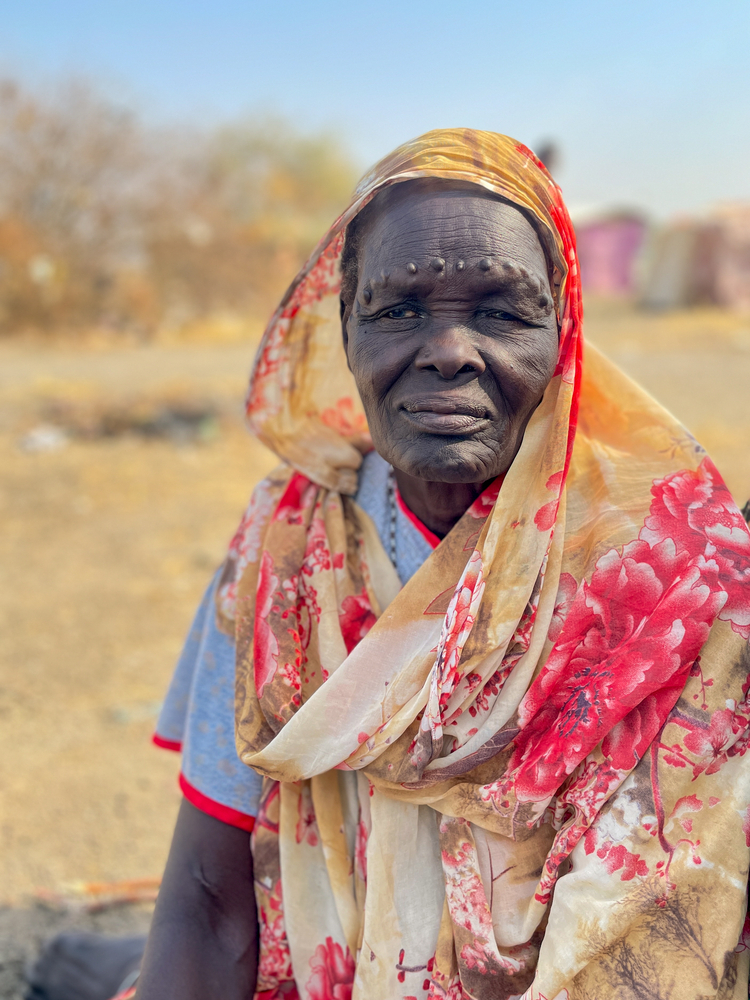
Nyaonya. 30 years old.
5 children, 2 elsewhere with relatives, 3 with her. Parents got killed during the conflict in SSD in 2013. Husband was killed in Khartoum in 2023. Alone with her grandmother whom she’s taking care of.
I arrived here in Oct. 2023 because the situation was not good anymore in Sudan. There were lot of stories about rapes, stealing and random shooting from house to house. I was feeling threaten, I couldn’t stay like that. Now I would never go back to Sudan because my husband has been killed there. He was the father of my children, my baby is only four months old. I arrived in the camp pregnant and gave birth here, with no medical assistance other than a traditional birth attendant. I’m staying here with my grandmother and three of my five children.
Life is not good for us. We don’t have enough food and because of that I can’t produce milk for my baby. I can see that the growing is not ok for him compared to my other children. I had a plan for them, I wanted them to be safe and educated but know I can’t achieve it because I have no money at all. Back in Khartoum, I was working as a tea seller; it was ok for the family. I was supposed to have relatives in Tondjo, so I wanted to go there but I don’t have any news. I’m not even sure they are still alive. I’m trapped here now.
Abuk Denj, 36 years old.
I came to the MSF clinic today with my daughter because she wasn’t feeling well. She had a strong cough and flu. Hopefully, the clinical officers could receive her and now we have a treatment for her to get better. We are very lucky to have the mobile clinic coming to us because we are well taken care of and the medicines are for free. We have nothing in our hands so there wouldn’t be other options for us to access healthcare. The hospital is too far, we can’t even pay the transportation to go there.
A few weeks ago, I was very concerned because one of my children was really suffering. We came to the clinic and then I learnt it was measles. I thought he would die. But MSF took good care about him and it wasn’t necessary to refer him to the hospital. He was cured here. This is why I’m thinking that as long as MSF stays in the camp, I don’t have to worry about my children’s health.
I arrived here on the 20th of June last year and now I am very confused. If I go back in Sudan, the war is still there, but if I go ahead in South Sudan it’s not good either. I really hope for peace in Sudan because the situation was better there. Children can go to school and I can get a job. Here, there is nothing to do, only waiting. I have no news from my husband since we arrived, so I am on my own.
Mary Okoth Yomon, 44 years old.
My baby is two years and half and she’s sick for more than one year. She has tuberculosis but since we left our place because of the war, she doesn’t have any treatment anymore. Now she eats really badly so she has been admitted in the malnutrition ward of this hospital. I think she’s improving now but she’s still very weak. I had seven children but three died already. I hope she won’t. Every other place I’ve tried before, they didn’t succeed to cure her. So I came especially to this hospital because I heard MSF is here. When she gets better I want to go back to Khor camp and take care of my other children.
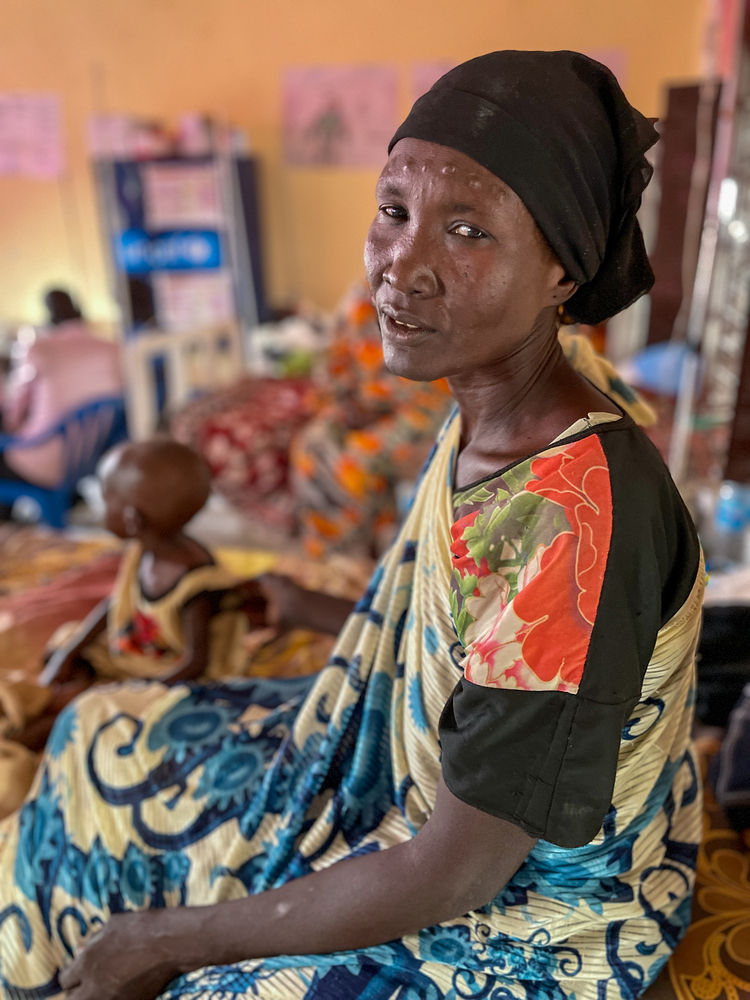
Nyataba Gatluak, 30 year-old.
I first came here because one of my children was sick, we were referred from the transit center. But now he has improved, another one is feeling bad. I just learnt he had malaria. I’m really worried about this sickness. I don’t know what to do. We don’t have any mosquito net, our living conditions are really bad so it might happen again. Now I’m confused, I don’t know how long it will last. I didn’t plan to stay here in Renk. I want to move further to the south, towards Malakal.
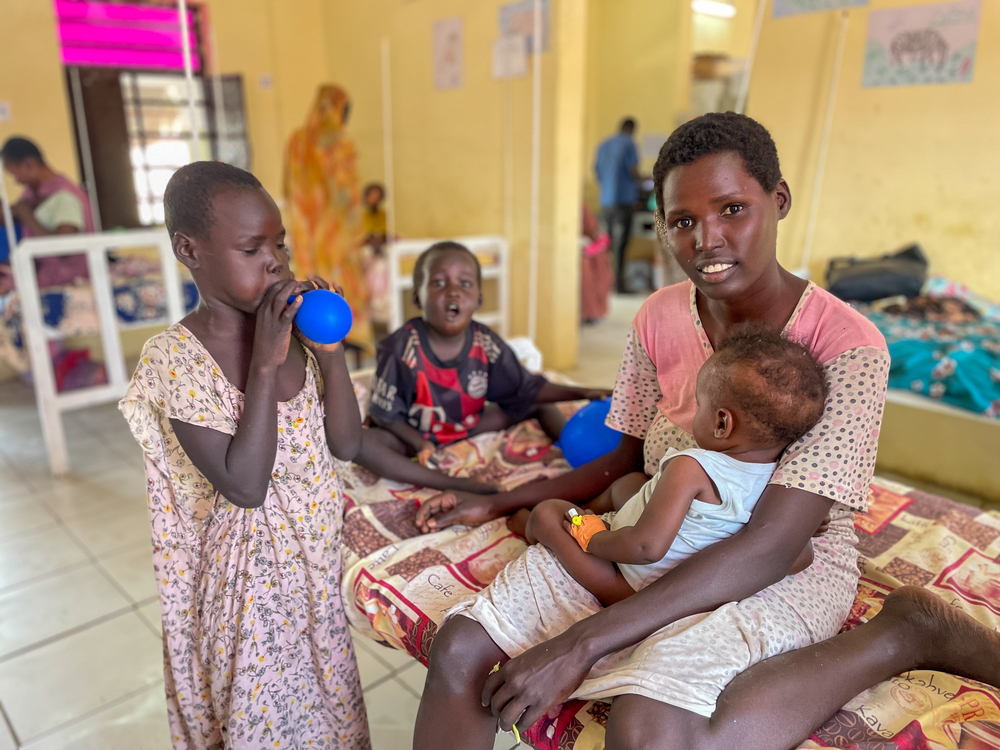
Anonymous refugee from Sudan.
I fled the war in Sudan. When I arrived at the border in Joda, the doctors decided that my baby needed to be referred here in the Renk hospital because he is malnourished. My husband is jobless so we don’t have money nor food. Our children are getting sick again and again and there is nothing we can do.
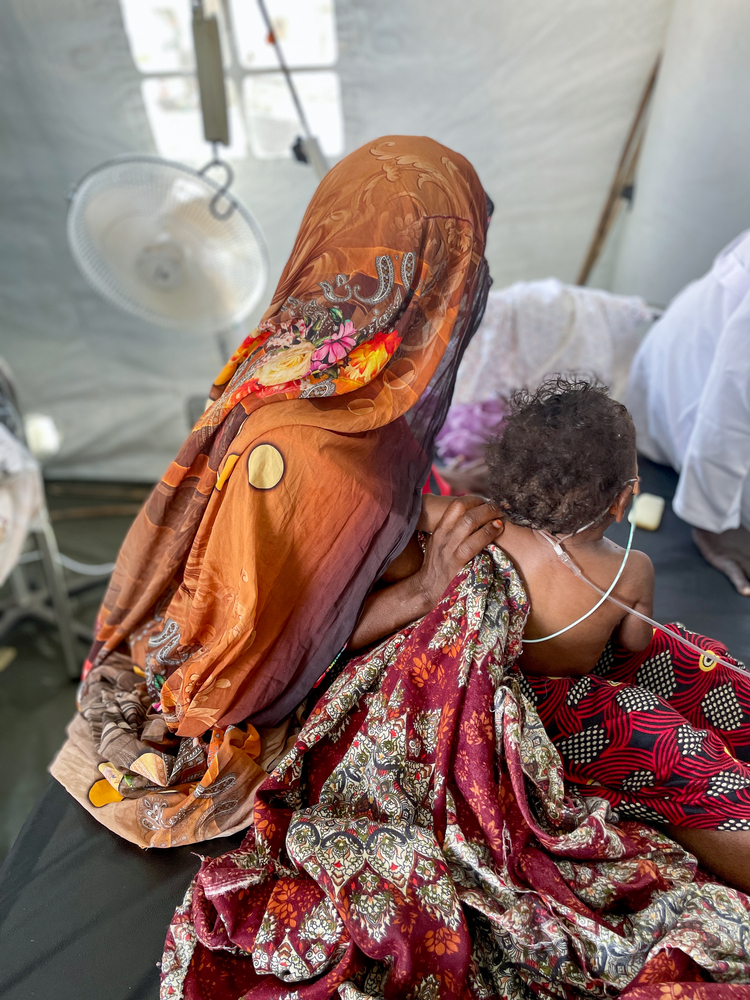
Chira Casah, 24 years old.
I tried four different hospitals since I left Khartoum but this is the first place where I can find some help for my health issues. I have thyroid disorder so when I don’t have my medicines I have temperature, I feel dizzy, I have hormonal issues, I sleep bad and I lose weight. But I didn’t have choice, with my family we had to run from this war hell. We left with mother, my brother and my sister but we lost contact with my father and my two other brothers. I hope they are still alive.
It is very difficult here. In Khartoum we had a comfortable life with a nice home. All the way from there was not safe and now it’s not easy to adapt in this camp. We always have someone sick in the family since we arrived, we come every two days to the MSF clinic to get some help. We don’t have enough food and not enough water. You will just die from hunger if you don’t go out and try everything you can to work and get small money.
I was studying animal protection in the university and I wanted to work and have a family. Now I lost contact with all my friends and I don’t know what my future will be. It’s very cloudy. I wish it will be fine, but honestly, I don’t know. I feel like my whole family is falling apart. I’m the only one who keeps faith.
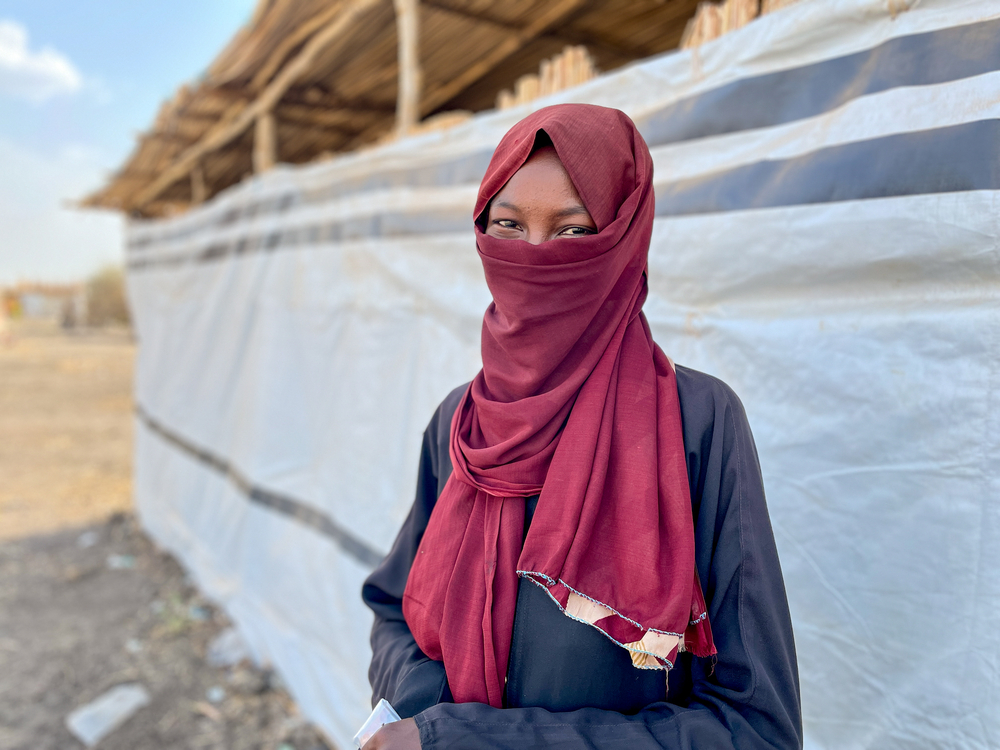
Achol Akiri, 40 years old.
I’m in Renk with my grandchildren because my daughter died in December, giving birth to her last baby. Since then, I take care of them and I try to take them to Juba, and then if I can even in Uganda or Kenya. There the refugees are better than this one and they will be able to get education. Here there is nothing good for them. But it’s not easy. The little one is four months old and she’s sick. As she doesn’t have her mother’s milk it’s hard to give her some food and the water in the camp is bad. She has diarrhea again and again. If MSF wasn’t here, I would have left already but now I’m waiting for my granddaughter to be cured. I hope she will get well soon, I heard MSF doctors are good so I keep hope.
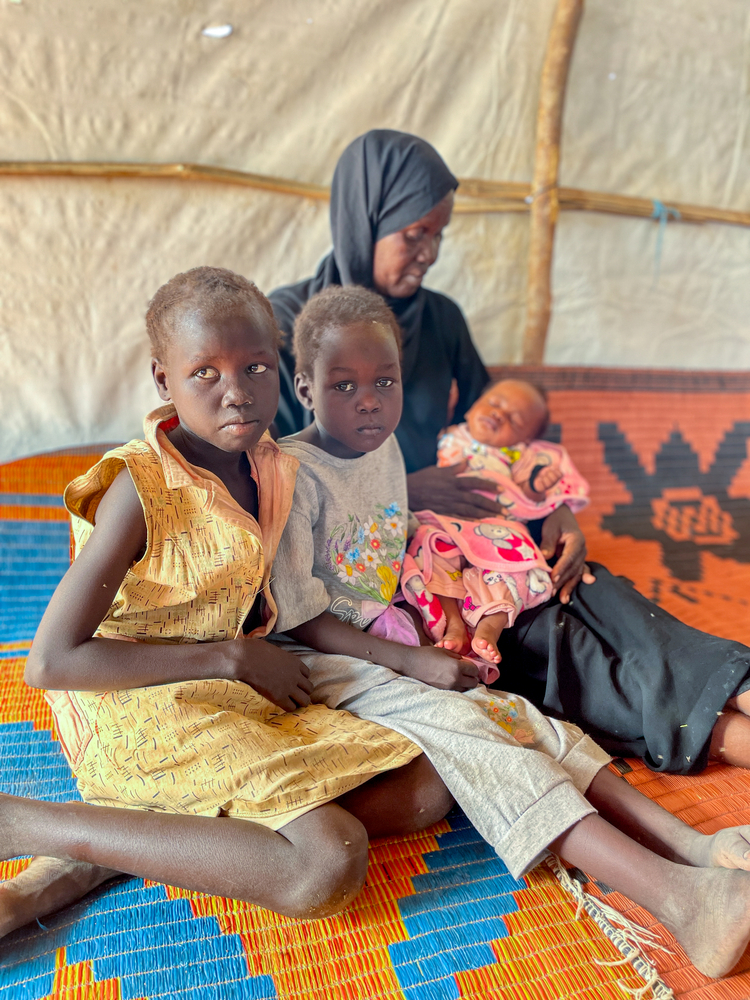
Family of five.
We are a family of five, we arrived yesterday from Sennar, in Sudan. We left because of the bad situation due to the war. Since it broke out in April 2023, we’ve been trying to get some money but it took long. We saw very bad things during the past months. Fighting and bombings were close to us. We succeeded to survive day by day. Now we want to go to Juba. We have some relatives there. But the whole journey depends on organisations because we don’t have any money left. We only took essential belongings with us and we left behind all the rest. We are worried about getting sick because of living in bad conditions and not having enough food for the family. The future is scary, we know the situation is not good.
Aliza Kon, 36 years old (in blue).
We left Southern Sudan because of tribal fighting, then stayed in Khartoum for four years because we could find work there. In South Sudan there is too much discrimination so if you don’t belong to the good ethnic [group] you won’t be able to work. But at some point, we became too afraid of the war in Sudan, soldiers were everywhere. We had to go.
Now, the whole family is tired and sick. A little girl has worms in the stomach, another boy has a skin disease, the grandmother has low blood pressure and me I have teeth issues. We don’t have food and we can’t get any help because of the situation. Only God knows what’s coming for us. All that matters now is that we don’t hear the bombings anymore, it feels safer, but it’s not easy to run from one place to another.
We want our children to go to school. We didn’t have that chance, but it can change everything. We really hope for that. Unfortunately, we don’t have money and we know money makes all the difference. We won’t be able to take the children to Uganda and offer them a better life. We know there is no exit, all is bad. We are losing hope.
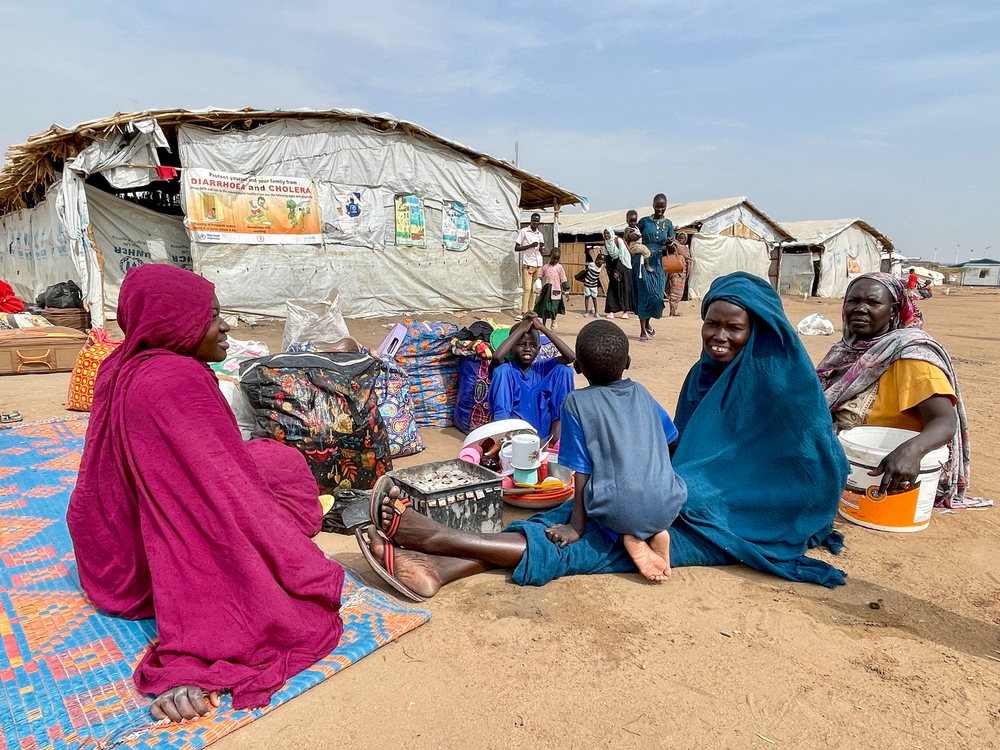
Mohamad, 23 years old.
We decided to leave Sudan with my family because the situation was getting worst and worst, we couldn’t stay anymore. We came to South Sudan because it’s the closest country so it was easier for us. But we don’t know anyone here. We know we have to go to Renk in the transit centre but if the life is not good, then we will move. We still have some relatives in Madani and I’m worried about them because the fighting reached this place. I hope they are ok. I also worry about my parents because they both have a treatment for diabetes and I don’t know if the drugs are available where we go. But I try to stay optimistic. We will try to find work and gather some money. My dream would be to go to Kenya or even Canada. I think it’s a beautiful country where I could have a better life.
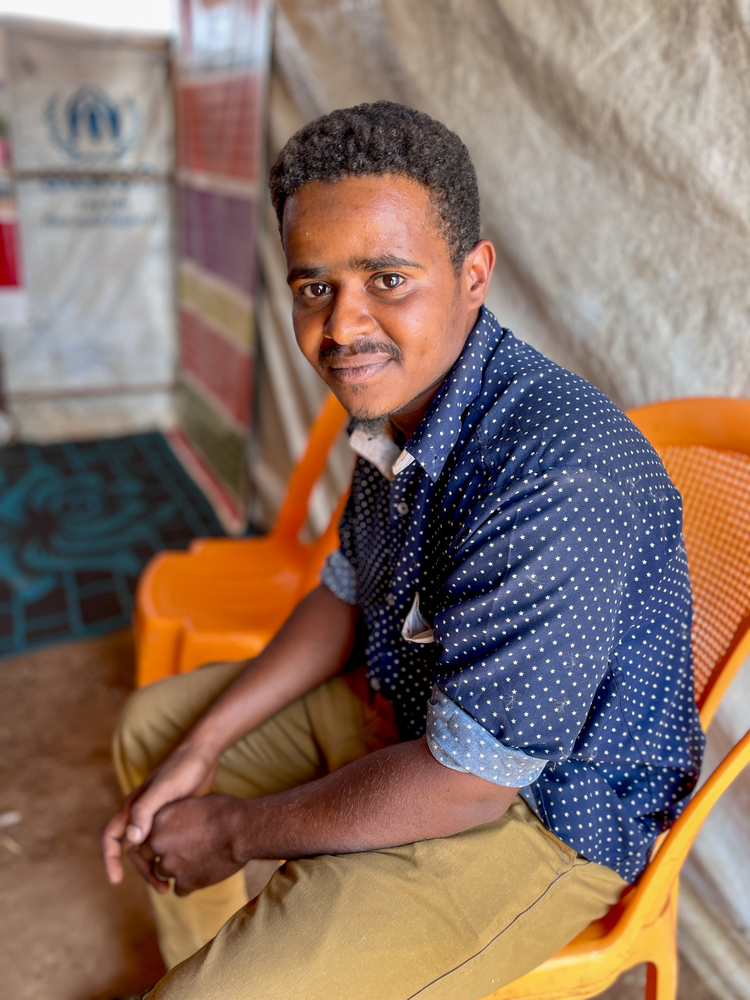
William Jokite, 19-year-old.
I was working in Khartoum when the war broke out in April 2023. The warehouse where I was standing was bombed and 15 out of 20 people were killed in the attack. The rest of us we stayed for a while locked inside waiting for things to calm down but they didn’t. So we decided to go out, crawling on the floor. One of my colleague tried to stand up and run but we saw him being shoot in the neck, he died instantly. It was really scary. After a while, we succeeded to find a car and I knew how to drive so we could escape. When it ran out of fuel we decided to go on by foot. Unfortunately, I hurt myself a few days before with a sharp object when I was bathing in the river, so I wasn’t in good shape. My friends decided to leave me behind so they can move faster. Now I’m on my own. I had to walk three days and three nights non-stop, without sleeping. Because of this long walk, my foot got really worst. I feel lot of pain and I see it’s getting bad with bleedings and liquids. My whole lower leg is swollen. I’m worried about it, I don’t know how it will be in the future. But I have to move on to meet my family in Maban. Sometimes, when I woke up at night I see my siblings playing in the yard. I want to be with them again.
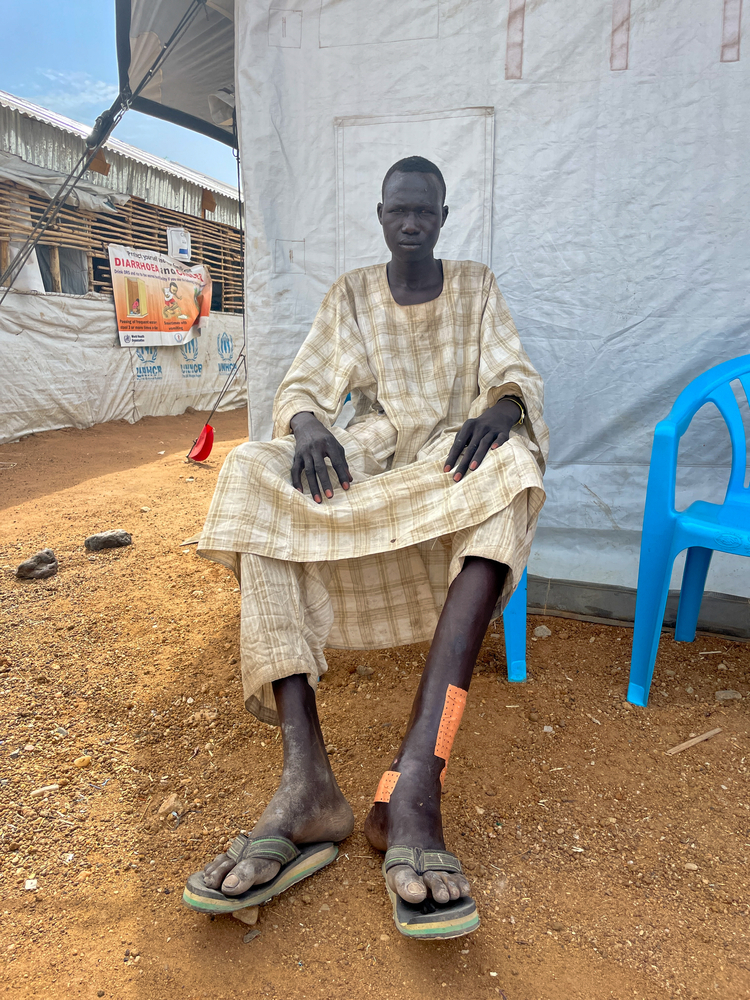
Mary Niogok, 40 years old accompanies a distant aunt from Sudan to South Sudan.
When the war broke out, I committed to accompany a distant aunt in South Sudan for her to be safe. I left my children behind and left alone with her. I thought the journey won’t be too long but since we arrived in Renk, last November, her condition is deteriorating. She’s literally starving. She wasn’t so thin before, now you can see her bones and she’s just lying on the floor, without any energy. If the rain comes I don’t know what I will do, she will be lying in the mud as we don’t have anything to protect our shelter. This is because of the living conditions here. We have nothing to eat. I can’t go further with her, but I can’t go back either because I have to look after her. I’m stuck in here. I’m waiting for her to die at night so I will be able to meet my children again.
